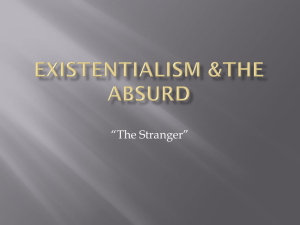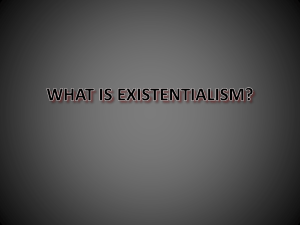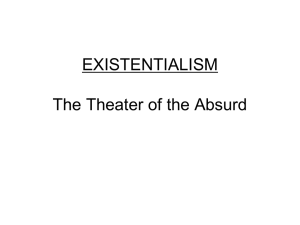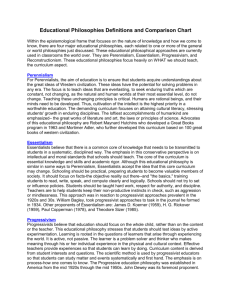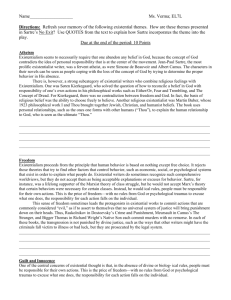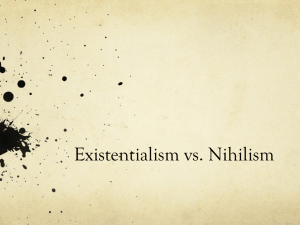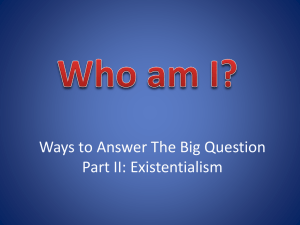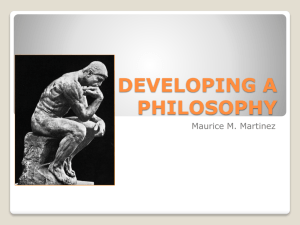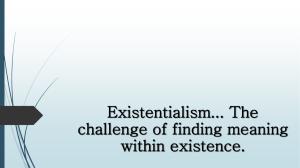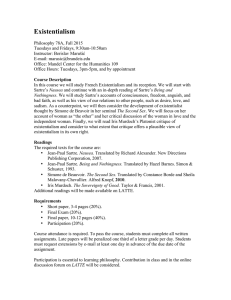Existentialism is a philosophy concerned with finding self and the
advertisement
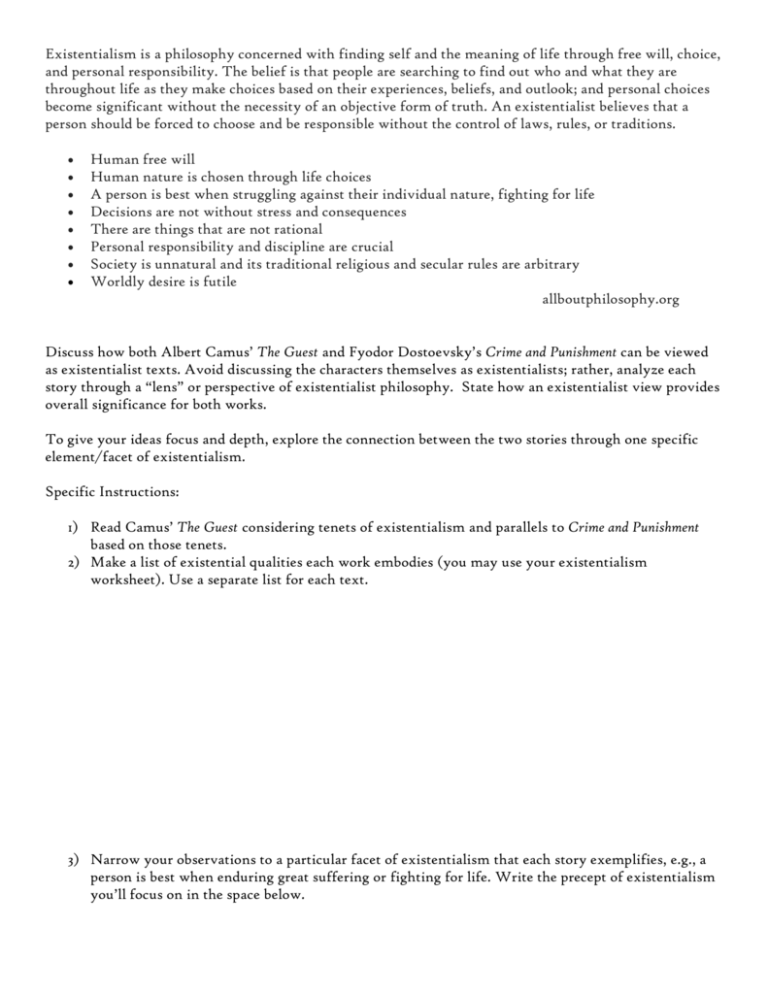
Existentialism is a philosophy concerned with finding self and the meaning of life through free will, choice, and personal responsibility. The belief is that people are searching to find out who and what they are throughout life as they make choices based on their experiences, beliefs, and outlook; and personal choices become significant without the necessity of an objective form of truth. An existentialist believes that a person should be forced to choose and be responsible without the control of laws, rules, or traditions. Human free will Human nature is chosen through life choices A person is best when struggling against their individual nature, fighting for life Decisions are not without stress and consequences There are things that are not rational Personal responsibility and discipline are crucial Society is unnatural and its traditional religious and secular rules are arbitrary Worldly desire is futile allboutphilosophy.org Discuss how both Albert Camus’ The Guest and Fyodor Dostoevsky’s Crime and Punishment can be viewed as existentialist texts. Avoid discussing the characters themselves as existentialists; rather, analyze each story through a “lens” or perspective of existentialist philosophy. State how an existentialist view provides overall significance for both works. To give your ideas focus and depth, explore the connection between the two stories through one specific element/facet of existentialism. Specific Instructions: 1) Read Camus’ The Guest considering tenets of existentialism and parallels to Crime and Punishment based on those tenets. 2) Make a list of existential qualities each work embodies (you may use your existentialism worksheet). Use a separate list for each text. 3) Narrow your observations to a particular facet of existentialism that each story exemplifies, e.g., a person is best when enduring great suffering or fighting for life. Write the precept of existentialism you’ll focus on in the space below. 4) Write a thesis statement that posits your idea about how together the works illuminate the tenet of existentialist philosophy you stated for number three. 5) Using your thesis, write a complete introduction to an expository essay. 6) Explore one specific parallel of particular interest based on your thesis. Use at least one short quote from each work to support your argument. (See this as a body paragraph that aligns with your introduction.) ***Use the “Transitions” hand-out to help you connect your ideas cohesively!!!***
